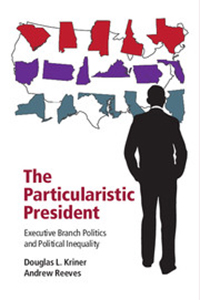“The current snow storm is providing an unexpected challenge to mayors, governors and other state and local officials throughout the mid-Atlantic and New England,” said Andrew Reeves, a political scientist at Washington University in St. Louis who studies the politics of natural disasters.
“Not only does a major snow storm launch an unexpected stress test on already strained budgets, it lets us observe leaders reacting to unexpected crises without much lead time,” he said

Describing the big snow storm as a “pop quiz” in leadership for politicians, Reeves notes that then-Massachusetts Gov. Michael Dukakis received high marks for his handling of the Blizzard of 1978, whereas the late Washington, D.C., Mayor Marion Barry was ridiculed for partying at the 1987 Super Bowl while his constituents were digging out from a massive, two-foot snow fall.
“A fair test or not, these unexpected severe weather calamities have provided the low points for some — and launching pads for others — in their political careers,” said Reeves, PhD, assistant professor of political science in Arts & Sciences and a research fellow at the Weidenbaum Center on the Economy, Government, and Public Policy.
“Given the past voter backlash against responses that are (or at least appear) inept, it’s of little surprise that (New York City) Mayor (Bill) De Blasio took an aggressive response even though the storm didn’t live up to the initial forecasts for New York,” he said.
Reeves’ research looks at how voters hold presidents and state governors accountable for the decisions they make while in office, including decisions to provide emergency funding to assist local states and counties with economic relief from natural disasters, such as the megastorm now lashing the nation’s Eastern seaboard.
His forthcoming book, “The Particularistic President: Executive Branch Politics and Political Inequality” (Cambridge University Press, 2015), examines how local accountability, combined with the institutions of presidential elections, causes presidents to disproportionately reward important constituencies with federal dollars, including the declaration of disaster relief.

In the book, Reeves and co-author Douglas Kriner, PhD, of Boston University, argue that presidents, like members of Congress, are particularistic — they routinely pursue policies that allocate federal resources in a way that disproportionately benefits their more narrow partisan and electoral constituencies.
“Just by virtue of being a hotly contested electoral battleground, a state can expect to receive twice as many disaster declarations as it would if it wasn’t in play during the presidential election,” Reeves said.
In a current working paper, Reeves examines what motivates governors as they interact with the president in requesting aid for a natural disaster. His monthly analysis of disaster declaration requests from 1972-2006 finds that governors from swing states request disaster aid above and beyond the amounts suggested by actual need.
But this is only true, he finds, for governors who are not term-limited and can run again. He finds no evidence of partisan effects — governors from battleground states request help without hesitation from other-party presidents even at election time. The study does find that election-seeking governors contribute to the politicization of disaster aid.
“The best predictor of a presidential disaster declaration, bar none, is actual need,” Reeves said. “The question (of politics) arises in these marginal cases, when it’s unclear whether to give or not.”
Federal disaster relief is a substantial part of the federal budget, with one study estimating that Congress spent at least $136 billion from 2011-13, or about $400 per household per year.
“What is perhaps more important,” Reeves said, “is that it can quickly become the most important thing in a voter’s life.”